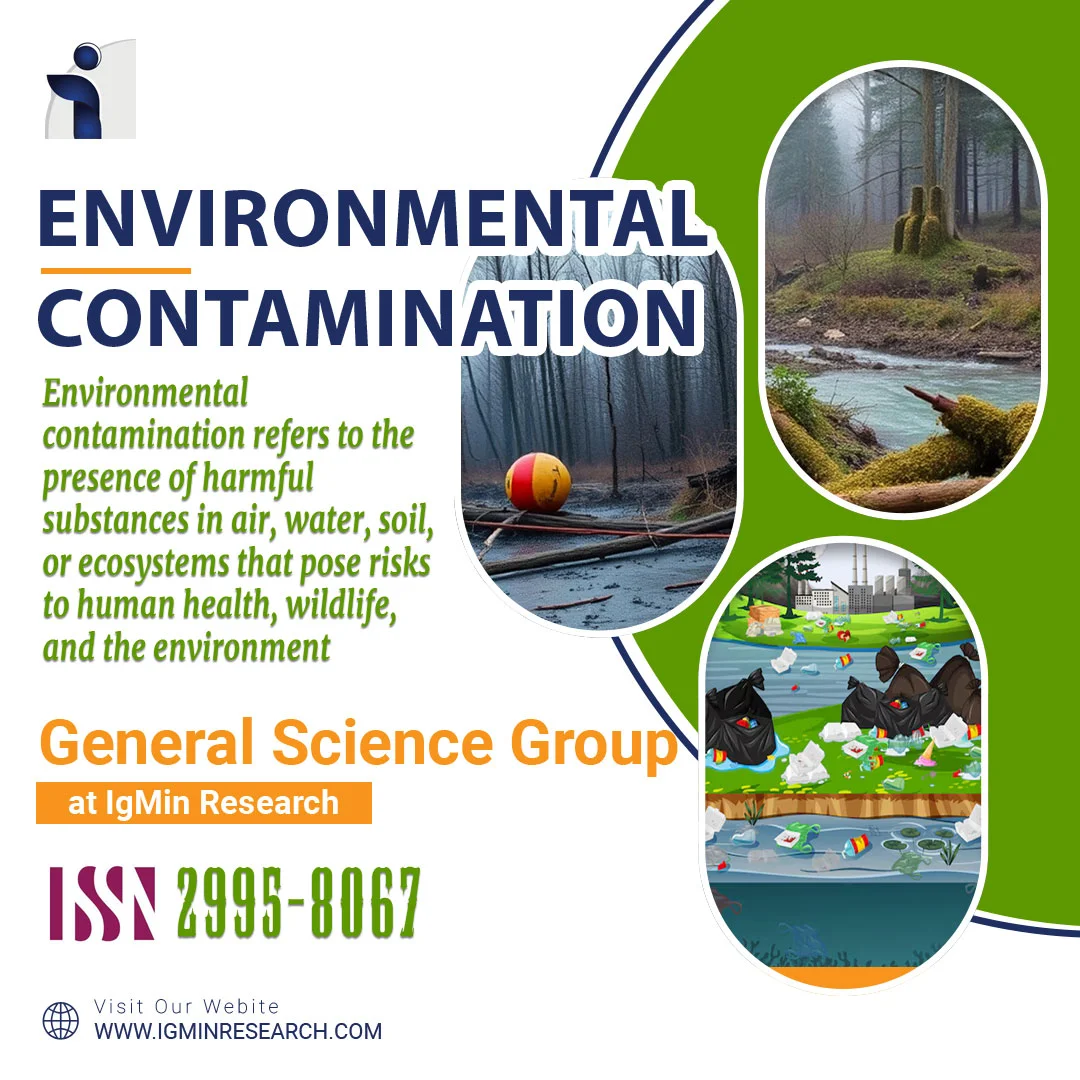Open Access Policy refers to a set of principles and guidelines aimed at providing unrestricted access to scholarly research and literature. It promotes the free availability and unrestricted use of research outputs, enabling researchers, students, and the general public to access, read, download, and distribute scholarly articles without financial or legal barriers. In this response, I will provide you with an overview of the history and latest resolutions related to Open Access Policy.
About
Environmental Contamination: Research, Solutions, and Health Implications
Environmental contamination is the release of harmful substances or energy into the natural environment, which disrupts ecosystems, damages human health, and disturbs the balance of natural processes. These contaminants can be chemical, such as heavy metals or pesticides, biological, including bacteria and viruses, or physical, like radiation and excessive heat. Understanding environmental contamination has become increasingly important as its effects on our planet and health grow more pronounced.
The Role of Research in Tackling Environmental Contamination
To combat the adverse effects of environmental contamination, researchers aim to uncover the origins, spread, and consequences of these pollutants. Research papers submitted to environmental contamination research platforms and published in peer-reviewed journals on environmental pollution are crucial for advancing knowledge in this field. These studies offer evidence-based insights into how pollutants affect both the environment and human health, enabling the development of better mitigation strategies.
The Impact of Environmental Contamination on Human Health
The effects of environmental contamination on human health are a growing concern. Exposure to various pollutants like heavy metals, pesticides, and industrial chemicals has been linked to chronic illnesses, developmental problems, and even genetic damage. Understanding these health risks through studies published in top journals in environmental science is vital for formulating policies that protect public health and prevent further damage.
Collaboration for Sustainable Solutions
Tackling the complex issue of environmental contamination requires a collective effort. It’s a challenge that spans across multiple disciplines, from biology and medicine to engineering and environmental sciences. Through collaboration, experts can share knowledge and resources to develop innovative and sustainable solutions. These efforts are crucial in safeguarding not only the environment but also the well-being of future generations.
In summary, the study of environmental contamination and its effects on both ecosystems and human health demands continuous research and innovation. By submitting environmental contamination research to peer-reviewed journals on environmental pollution and exploring new technological solutions, we can better understand the issue and work toward creating a healthier, cleaner future for all.
General Science Group (6)
Open Access Policy refers to a set of principles and guidelines aimed at providing unrestricted access to scholarly research and literature. It promotes the free availability and unrestricted use of research outputs, enabling researchers, students, and the general public to access, read, download, and distribute scholarly articles without financial or legal barriers. In this response, I will provide you with an overview of the history and latest resolutions related to Open Access Policy.
Open Access Policy refers to a set of principles and guidelines aimed at providing unrestricted access to scholarly research and literature. It promotes the free availability and unrestricted use of research outputs, enabling researchers, students, and the general public to access, read, download, and distribute scholarly articles without financial or legal barriers. In this response, I will provide you with an overview of the history and latest resolutions related to Open Access Policy.
Open Access Policy refers to a set of principles and guidelines aimed at providing unrestricted access to scholarly research and literature. It promotes the free availability and unrestricted use of research outputs, enabling researchers, students, and the general public to access, read, download, and distribute scholarly articles without financial or legal barriers. In this response, I will provide you with an overview of the history and latest resolutions related to Open Access Policy.
Open Access Policy refers to a set of principles and guidelines aimed at providing unrestricted access to scholarly research and literature. It promotes the free availability and unrestricted use of research outputs, enabling researchers, students, and the general public to access, read, download, and distribute scholarly articles without financial or legal barriers. In this response, I will provide you with an overview of the history and latest resolutions related to Open Access Policy.
Open Access Policy refers to a set of principles and guidelines aimed at providing unrestricted access to scholarly research and literature. It promotes the free availability and unrestricted use of research outputs, enabling researchers, students, and the general public to access, read, download, and distribute scholarly articles without financial or legal barriers. In this response, I will provide you with an overview of the history and latest resolutions related to Open Access Policy.

Why publish with us?
Global Visibility – Indexed in major databases
Fast Peer Review – Decision within 14–21 days
Open Access – Maximize readership and citation
Multidisciplinary Scope – Biology, Medicine and Engineering
Editorial Board Excellence – Global experts involved
University Library Indexing – Via OCLC
Permanent Archiving – CrossRef DOI
APC – Affordable APCs with discounts
Citation – High Citation Potential
Which articles are now trending?
Research Articles
- Investigation of Lateral Vibrations in Turbine-generator Unit 5 of the Inga 2 Hydroelectric Power Plant
- A Unified Mobility Model for Semiconductor Devices and Sensors, Including Surface Hydrodynamic Viscosity
- Use of Augmented Reality as a Radiation-free Alternative in Pain Management Spinal Surgeries
- Development of a Mechanical Seal Closed Design Model
- Analytical Expressions of the Markov Chain of K-Ras4B Protein within the Catalytic Environment and a New Markov-State Model
- Efficient Room Temperature Ethanol Vapor Sensing by Unique Fractal Features of Tin Oxide
Advertisement













